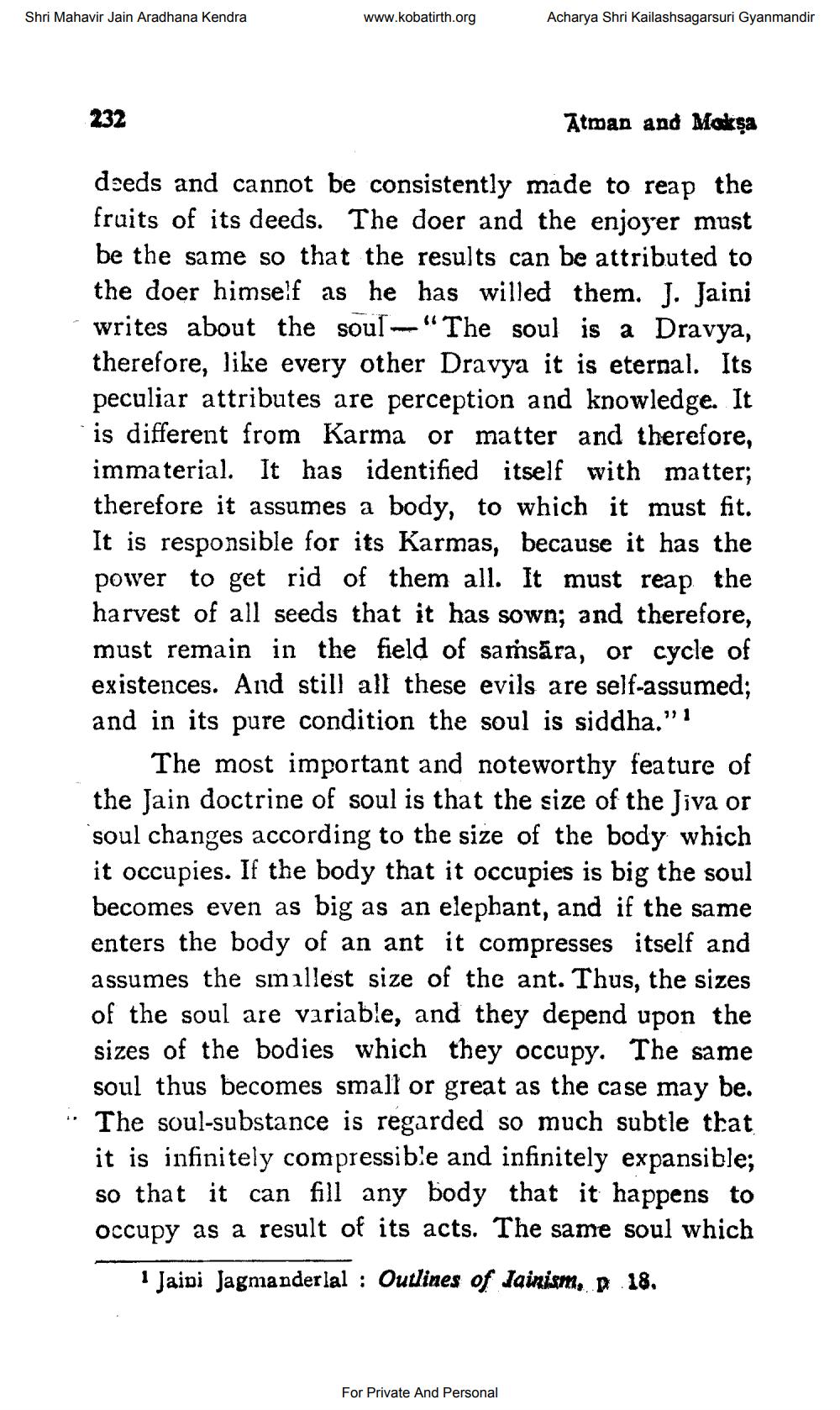________________
Shri Mahavir Jain Aradhana Kendra
232
www.kobatirth.org
Acharya Shri Kailashsagarsuri Gyanmandir
Atman and Mokṣa
deeds and cannot be consistently made to reap the fruits of its deeds. The doer and the enjoyer must be the same so that the results can be attributed to the doer himself as he has willed them. J. Jaini writes about the soul-"The soul is a Dravya, therefore, like every other Dravya it is eternal. Its peculiar attributes are perception and knowledge. It is different from Karma or matter and therefore, immaterial. It has identified itself with matter; therefore it assumes a body, to which it must fit. It is responsible for its Karmas, because it has the power to get rid of them all. It must reap the harvest of all seeds that it has sown; and therefore, must remain in the field of samsara, or cycle of existences. And still all these evils are self-assumed; and in its pure condition the soul is siddha."
"" 1
The most important and noteworthy feature of the Jain doctrine of soul is that the size of the Jiva or soul changes according to the size of the body which it occupies. If the body that it occupies is big the soul becomes even as big as an elephant, and if the same enters the body of an ant it compresses itself and assumes the smallest size of the ant. Thus, the sizes of the soul are variable, and they depend upon the sizes of the bodies which they occupy. The same soul thus becomes small or great as the case may be. The soul-substance is regarded so much subtle that it is infinitely compressible and infinitely expansible; so that it can fill any body that it happens to occupy as a result of its acts. The same soul which
1 Jaini Jagmanderlal : Outlines of Jainism, p 18.
For Private And Personal




